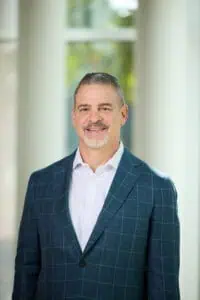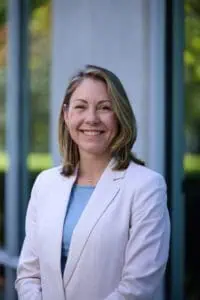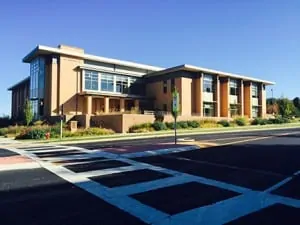

Join SCS Engineers at EEI National Accounts Spring Conference, taking place April 12–15, 2026, in Phoenix. EEI’s National Accounts Spring Conference brings together national corporate energy users and key industry stakeholders to build relationships, conduct business, and address today’s most pressing energy challenges.
The workshop offers opportunities to meet face-to-face with electric companies, corporate customers, technology providers, and industry suppliers to support customer energy management needs. Attendees will also share best practices and benchmarking insights with peers, explore the latest industry trends through keynote sessions and breakouts, and engage in interactive roundtable discussions focused on real-world solutions. Register now!
Join SCS Engineers at ABA SEER’s 33rd Fall Conference at Crystal Gateway Marriott October 22-24, 2025. Leaders from government, industry, academia, and the community unpack the most pressing developments shaping environmental, energy, and resources law and policy in 2025.
Across two days of sessions, panels will explore:
Impacts of recent Supreme Court decisions
State and local leadership on climate, environmental justice, and the energy transition
Navigating divergent ESG requirements across jurisdictions
Legal complexities of PFAS in biosolids
Ethics in environmental marketing and disclosures
Whether you’re a seasoned practitioner or early in your career, this conference offers timely insights and invaluable networking during a period of rapid change. Connect with SCS Engineers on-site to discuss practical strategies and solutions for your projects. Register now!
Join SCS Engineers at the 39th Annual Environmental Permitting Summer School (EPSS) in Marco Island, Florida, from July 15th to 18th, 2025. This year’s EPSS promises to be a premier event, uniting public and private professionals for exceptional leadership development, networking, and top-notch programming. The Environmental Permitting Summer School is attended by attorneys, consultants, engineers, state and local government officials, developers, landowners, and others with a strong interest in environmental issues in Florida.
SCS Experts will be speaking on the following topics:
Land and Golf Course Redevelopment: Opportunities and Challenges with Eddy Smith, Wednesday, July 16th at 10:30 AM

Remediation and Site Closure Strategies – Practical Solutions to Complex Sites with Brittney Odom, Wednesday, July 16th at 3:30 PM

Join us at the 39th Annual Environmental Permitting Summer School to gain valuable insights and connect with leading professionals in the field. Don’t miss out on this opportunity for growth and collaboration! Click for more conference details and information.
SCS Engineers provides more articles and information on remediation and Brownfields here and on our website.
How Everyone Benefits from Land Recycling Recycling land and properties helps build opportunities for creating and transitioning commercial and mixed-use space. It is often a sensible and sustainable option with rising real estate costs, increased …
How Statistics Streamline Site Assessment and Remediation Costs Statistics is the science of learning from data and using the results in many industries for various purposes. As environmental consultants, we use statistics primarily to help clients meet …
Adaptive Reuse of Commercial Buildings The commercial office sector in cities around the country is facing unprecedented challenges due to high vacancy rates that have been driven by factors including the work-from-home trend and …
Join SCS Engineers at the 27th Annual EUEC Conference March 25–27, 2025. Get ready for an incredible experience at the Energy Utility Environment Conference (EUEC 2025) and Charge Expo, held at the Tuscany Suites & Casino in Las Vegas. This event will bring together over 1,000 industry professionals, feature insights from 300+ expert speakers, and showcase 100+ innovative exhibits. Located just off the Las Vegas Strip, this conference is a must for energy and environmental professionals looking to connect, learn, and lead in sustainable solutions. We look forward to seeing you there!
Join SCS Engineers at the 2024 Illinois Manufacturers’ Association Environment & Energy Conference. The event will be held October 22 at the Tinley Park Convention Center in Tinley Park, IL. This event is great for Illinois manufacturers to gain critical insights from state environmental and energy experts. Designed for CEOs, plant managers, safety officers, legal teams, and environmental professionals, this one-day program will delve into compliance, regulations, permitting, sustainability, and future legislative developments. Attendees will hear directly from state officials, regulators, and industry leaders on the most pressing environmental and energy-related issues.
As a proud Lunch Sponsor, SCS Engineers invites you to visit our booth to discuss your environmental compliance challenges and explore solutions tailored to your upcoming needs. Don’t miss this opportunity to connect with our experts on site! Register today.
The Pennsylvania Independent Oil & Gas Association (PIOGA) is hosting its 2024 Spring Meeting at Rivers Casino in Pittsburg, Pennsylvania. This year’s event theme, “Climate, Commodities, and Chaos: Threats to a Strong U.S. Energy Game Plan,” will explore topics concerning changes in the oil and gas industry, including regulatory updates, consumer preferences, and market sentiment. The agenda features an oil and gas producers’ roundtable on navigating risks in energy development, regulatory updates, and a post-meeting cocktail reception where attendees and exhibitors can network with each other.
Registration is open to PIOGA members and non-members, with special pricing for students.
Under section 211 of the Clean Air Act, the Environmental Protection Agency (EPA) is required to set renewable fuel percentage standards every year, including for cellulosic biofuel, biomass-based diesel, advanced biofuel, and total renewable fuel. In November the EPA established the 2017 standards, which will apply to all motor vehicle gasoline and diesel produced or imported in the year 2017. Most biogas produced qualifies as Advanced Cellulosic Biofuels, or the D3 category, which is the same as cellulosic (non-corn) ethanol. For the last several years, nearly 95% of the advanced cellulosic fuel generated has been from digester and landfill biogas, not cellulosic ethanol.
The final rule also establishes the four percentage standards applicable to producers and importers of gasoline and diesel, based on volume requirements. Renewable Fuel Volumetric Obligations (RVOs) are expected to continue driving the market to overcome constraints in the renewable fuel distribution infrastructure. This, in turn, could lead to substantial growth over time in the production and use of renewable fuels. If a renewable fuel-producing project uses a Renewable Fuel Standard (RFS)-approved pathway and is registered with EPA, the project can generate credits that can be sold to produce additional revenue. The value of these Renewable Identification Numbers (RINs) credits fluctuates based on market supply and demand.
The 2017 RVOs finalized in November for 2017 will help drive the market demand for these credits. Producers of biogas want the demand for RVO to be higher than the supply of biogas that will actually be produced and used as vehicle fuel during the year. This will protect the value of RINs, encouraging revenues for biogas-vehicle fuel projects and financing for new projects. Digester and landfill biogas normally have the highest value of all RINs.
Overall, EPA’s 2017 standards recognize the important role that biogas plays among all advanced biofuel producers, including cellulosic ethanol, and the role biogas will continue to play for generating renewable fuel for US vehicles.
SCS Engineers’ National Experts are available to answer your questions about the impact of the 2017 standards on your business and current and potential projects. Click here to contact SCS.
“Even the best-designed, -built, and -maintained buildings waste energy. In fact, virtually all heating, ventilation, and air conditioning (HVAC) equipment, lighting, and building automation systems (BAS) compromise efficiency. Regardless of age, buildings over 50,000 square feet can benefit from a process called retro-commissioning (RCx),” writes Sam Cooke of SCS Engineers in Public Works Magazine.

Read the article: Public Works Magazine December 2015, print issue and online.
SCS Services offered to municipalities, hospitals, manufacturers, and businesses.